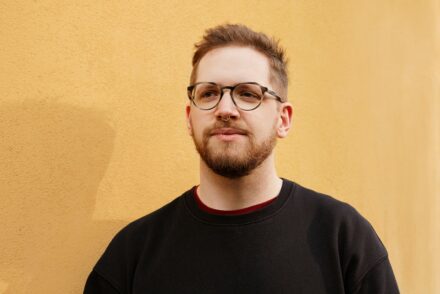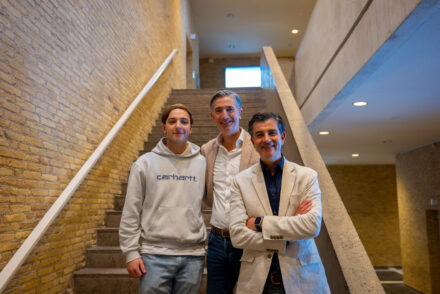Sticky Green Science
Cannabis seems to be an ineradicable part of Dutch culture, but remains a subject to debate, especially in the area of Tilburg.
Weed, hash and ‘space cake’ may not be completely legal in the Netherlands, they can openly be consumed in coffee shops because of the Dutch ‘gedoog’-policy. Since 1976, cannabis is ‘tolerated’ for recreational use. This liberal attitude towards ‘soft drugs’ became a trademark of Holland. However, even today concerns still rise occasionally, also in academia. Some think cannabis is less harmless than we tend to imagine, and say the Dutch drug policy is not working properly.
Janna Cousijn, researcher at the University of Amsterdam, recently made the news with her findings on the daily users of cannabis. She discovered that half of them became addicted, but were able to function quite normally, with a job, and a family. The other half of the heavy users developed serious problems. Especially people coping with fears and depressions seem to be part of this group, and also people who have a hard time to suppress their ‘desire’ and ‘cravings’.
Soft drugs aren’t soft
Cousijn warns that our liberal drug policy unjustly suggests that soft drugs won’t cause addiction and aren’t dangerous: “I was taught in high school that there are drugs that are physically addictive, like alcohol and heroine, and that soft drugs only cause psychological addiction, which wasn’t so bad, we were told. This is not the case. Heroine is more toxic than cannabis, but both are addictive. You can even get addicted to gambling, which is not a drug. Addiction is located in the brain, not only in the drug.”
Nonetheless, Cousijn thinks that cannabis should not be prohibited: “In countries where soft drugs are illegal, there is just as much addiction.” Instead, she thinks we should make the drug policy even more liberal. Nowadays it is legal to use drugs, but not to produce them or to buy them or to keep them in stock for commercial purposes, which creates a rather paradoxical situation for coffee shops, who buy their stuff illegally, through ‘the backdoor’, as they say. “If you legalize drugs, the users can know what they smoke exactly.” Because when sold legally, the seller should for instance be able to tell you the level of ‘THC’ in the cannabis, which will tell you how ‘high’ you will get from it.
Tilburg: Cannabis City Number 1
Tilburg University professor Pieter Tops (Public Administration) stimulates the drug debate these days with his take on the drugs economy and policy in his recent Dutch book ‘De achterkant van Nederland’, which can be translated as ‘The reverse side of the Netherlands’. According to this book written together with journalist Jan Tromp, Tilburg is capital city when it comes to the growing of weed: 800 million euro a year is earned by the growers in this ‘southern’ part of Holland. The area here is attractive for growers. Farmers around here seem to be willing to rent out empty barns and stables to anyone who wants to cultivate some ‘alternative’ vegetables. Also, there is a fairly large scene of trailer parks and biker clubs with people who organize their own ‘way of life’, with their own ways of making money. The Tilburg-based drug industry employs 2500 workers and consists of approximately 60 criminal cooperations. They not only produce soft drugs, but also hard drugs, such as XTC.
Just like Cousijn, Tops questions the ‘moral ambiguity’ of the Dutch drug policy. When using and selling is legal, while growing is illegal, you inevitably create a market with double standards and hypocrisy. On the one hand Tops opts for legalization of soft drugs in Univers, on the other he says punishment should be more severe for hard drug dealers: “There is no sense in locking up a hard drug criminal for two years. Only when you keep him in jail for ten years, the structure of the criminal organization around him will collapse. Then they need time to reorganize.” Subsequently, Tops calls for a national plan for ‘undermining’ the widespread economy of drugs in the Netherlands.
Critique
Not every researcher thinks the alarm bells should ring. After reading our article on Tops, drugs professor Peter Cohen, well-known because of his explicit and alternative view on the matter, did send us a reply which advocates an even more liberal approach to drugs: “An academic like Tops should not scrutinize drug crimes with a shallow, conventional juridical perspective, but preferably with a perspective which combines a historical view with social sciences. Then you can see that ‘crime’ in this case is – for the full hundred percent – the product of an untenable prohibition of recreational drugs.” According to Cohen, it’s our narrow-minded view on drugs which makes them evil, not the drugs in itself: “One day the prohibition of abortion became untenable, later the same happened with homosexuality. Illegal abortion and homosexuality are not there anymore and this means that their ‘criminality’ is long gone as well.”
Cohen is known for his radical thesis that there is no such thing as addiction, only psychological ‘ties’ which we can develop with drugs, but also with our partner, with our hobbies or holidays, or whatsoever. Incriminating one of these ties is not the way to decrease the hold they can have: “Illegal alcohol made the Kennedys rich, and Al Capone as well, that is why they got rid of these cases of criminality!” Criminalizing means creating a ‘phantom policy’, he says, where legalizing will make the ‘reverse side of the Netherlands’ disappear like a puff of smoke.







